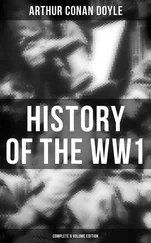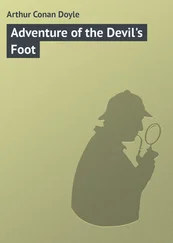It may be conjectured that, up to the period of the definite entrenchment of the two armies, the losses of the enemy were not greater than our own. It is in the attack that losses are incurred, and the attack had, for the most part, been with us. The heavier guns of the Germans had also been a factor in their favour. From the 18th onwards, however, the weekly losses of the enemy must have been very much greater than ours, since continually, night and day, they made onslaughts, which attained some partial and temporary success upon the 20th, but which on every other occasion were blown back by the rifle-fire with which they were met. So mechanical and halfhearted did they at last become that they gave the impression that those who made them had no hope of success, and that they were only done at the bidding of some imperious or imperial voice from the distance. In these attacks, though any one of them may have only furnished a few hundred casualties, the total spread over several weeks must have equalled that of a very great battle, and amounted, since no progress was ever made, to a considerable defeat.
Thus on September 19 there was a succession of attacks, made with considerable vivacity and proportional loss. About 4 P.M. one developed in front of the 4th and 6th Brigades of the First Corps, but was speedily stopped. An hour later another one burst forth upon the 7th and 9th Brigades of the Second Corps, with the same result. The artillery fire was very severe all day and the broad valley was arched from dawn to dusk by the flying shell. The weather was still detestable, and a good many were reported ill from the effects of constant wet and cold. The 20th was the date of two separate attacks, one of which involved some hard fighting and considerable loss. The first, at eight in the morning, was upon Shaw’s 9th Brigade and was driven off without great difficulty. The second was the more serious and demands some fuller detail.
On the arrival of the Sixth Division upon the 18th, Sir John French had determined to hold them in reserve and to use them to relieve, in turn, each of the brigades which had been so hard-worked during the previous week. Of these, there was none which needed and deserved a rest more than Bulfin’s 2nd Brigade, which, after their attack upon the Chemin-des-Dames upon the 14th, had made and held the trenches which formed both the extreme right and the advanced point of the British line. For nearly a week these men of iron had lain where the battle had left them. With the object of relieving them, the 18th Brigade (Congreve’s) of the Sixth Division was ordered to take their places. The transfer was successfully effected at night, but the newcomers, who had only arrived two days before from England, found themselves engaged at once in a very serious action. It may have been coincidence, or it may have been that with their remarkable system of espionage the Germans learned that new troops had taken the place of those whose mettle they had tested so often; but however this may be, they made a vigorous advance upon the afternoon of September 20, coming on so rapidly and in such numbers that they drove out the occupants both of the front British trenches—which were manned by three companies of the 1st West Yorkshires—and the adjoining French trench upon the right, which was held by the Turcos. The West Yorkshires were overwhelmed and enfiladed with machine-guns, a number were shot down, and others were taken prisoners.
Fortunately, the rest of the brigade were in immediate support, and orders were given by General Congreve to advance and to regain the ground that had been lost. The rush up the hill was carried out by the 2nd Notts and Derby Regiment (Sherwood Foresters) in the centre, with the remainder of the West Yorks upon their right, and the 2nd Durham Light Infantry upon their left. They were supported by the 1st East Yorks and by the 2nd Sussex, who had just been called out of the line for a rest. The 4th Irish Dragoon Guards at a gallop at first, and then dismounting with rifle and bayonet, were in the forefront of the fray. The advance was over half a mile of ground, most of which was clear of any sort of cover, but it was magnificently carried out and irresistible in its impetus. All the regiments lost heavily, but all reached their goal. Officers were hit again and again, but staggered on with their men. Captain Popham, of the Sherwood Foresters, is said to have carried six wounds with him up the slope. Fifteen officers and 250 men were shot down, but the lost trench was carried at the point of the bayonet and the whole position re-established. The total casualties were 1364, more than half of which fell upon the West Yorkshires, while the majority of the others were Sherwood Foresters, East Yorkshires, and Durhams. Major Robb, of the latter regiment, was among those who fell. The Germans did not hold the trenches for an hour, and yet the engagement may be counted as a success for them, since our losses were certainly heavier than theirs. There was no gain, however, in ground. The action was more than a mere local attack, and the British line was in danger of being broken had it not been for the determined counterattack of the 18th Brigade and of the Irish dragoons. To the north of this main attack there was another subsidiary movement on the Beaulne ridge, in which the 5th and 6th Brigades were sharply engaged. The 1st King’s, the 2nd H.L.I., and the 2nd Worcesters all sustained some losses.
About this period both the British and the French armies began to strengthen themselves with those heavy guns in which they had been so completely overweighted by their enemy. On the 20th the French in the neighbourhood of our lines received twelve long-range cannon, firing a 35 lb. shell a distance of twelve kilometres. Three days later the opened fire with four new batteries of six-inch howitzers. From this time onwards there was no such great disparity in the heavy artillery, and the wounded from the monster shells of the enemy had at least the slight solace that their fate was not unavenged. The expenditure of shells, however, was still at the rate of ten German to one of the Allies. If the war was not won it was no fault of Krupp and the men of Essen. In two weeks the British lost nearly 3000 men from shell-fire.
It was at this time, September 20, that the Germans Rheims put a climax upon the long series of outrages and vandalisms of which their troops had been guilty by the bombardment of Rheims Cathedral, the Westminster Abbey of France. The act seems to have sprung from deliberate malice, for though it was asserted afterwards that the tower had been used as an artillery observation point, this is in the highest degree improbable, since the summit of the ridge upon the French side is available for such a purpose. The cathedral was occupied at the time by a number of German wounded, who were the sufferers by the barbarity of their fellow-countrymen. The incident will always remain as a permanent record of the value of that Kultur over which we have heard such frantic boasts. The records of the French, Belgian, and British Commissions upon the German atrocities, reinforced by the recollection of the burned University of Louvain and the shattered Cathedral of Rheims, will leave a stain upon the German armies which can never be erased. Their conduct is the more remarkable, since the invasion of 1870 was conducted with a stem but rigid discipline, which won the acknowledgment of the world. In spite of all the material progress and the superficial show of refinement, little more than a generation seems to have separated civilisation from primitive barbarity, which attained such a pitch that no arrangement could be made by which the wounded between the lines could be brought in. Such was the code of a nominally Christian nation in the year 1914.
Up to now the heavier end of the fighting had been borne by Haig’s First Corps, but from the 20th onwards the Second and Third sustained the impact. The action just described, in which the West Yorkshires suffered so severely, was fought mainly by the 18th Brigade of Pulteney’s Third Corps. On the 21st it was the turn of the Second Corps. During the night the 1st Wiltshire battalion of McCracken’s 7th Brigade was attacked, and making a strong counter-attack in the morning they cleared a wood with the bayonet, and advanced the British line at that point. A subsequent attack upon the same brigade was repulsed. How heavy the losses had been in the wear and tear of six days’ continual trench work is shown by the fact that when on this date the 9th Brigade (Shaw’s) was taken back for a rest it had lost 30 officers and 860 men since crossing the Aisne.
Читать дальше












